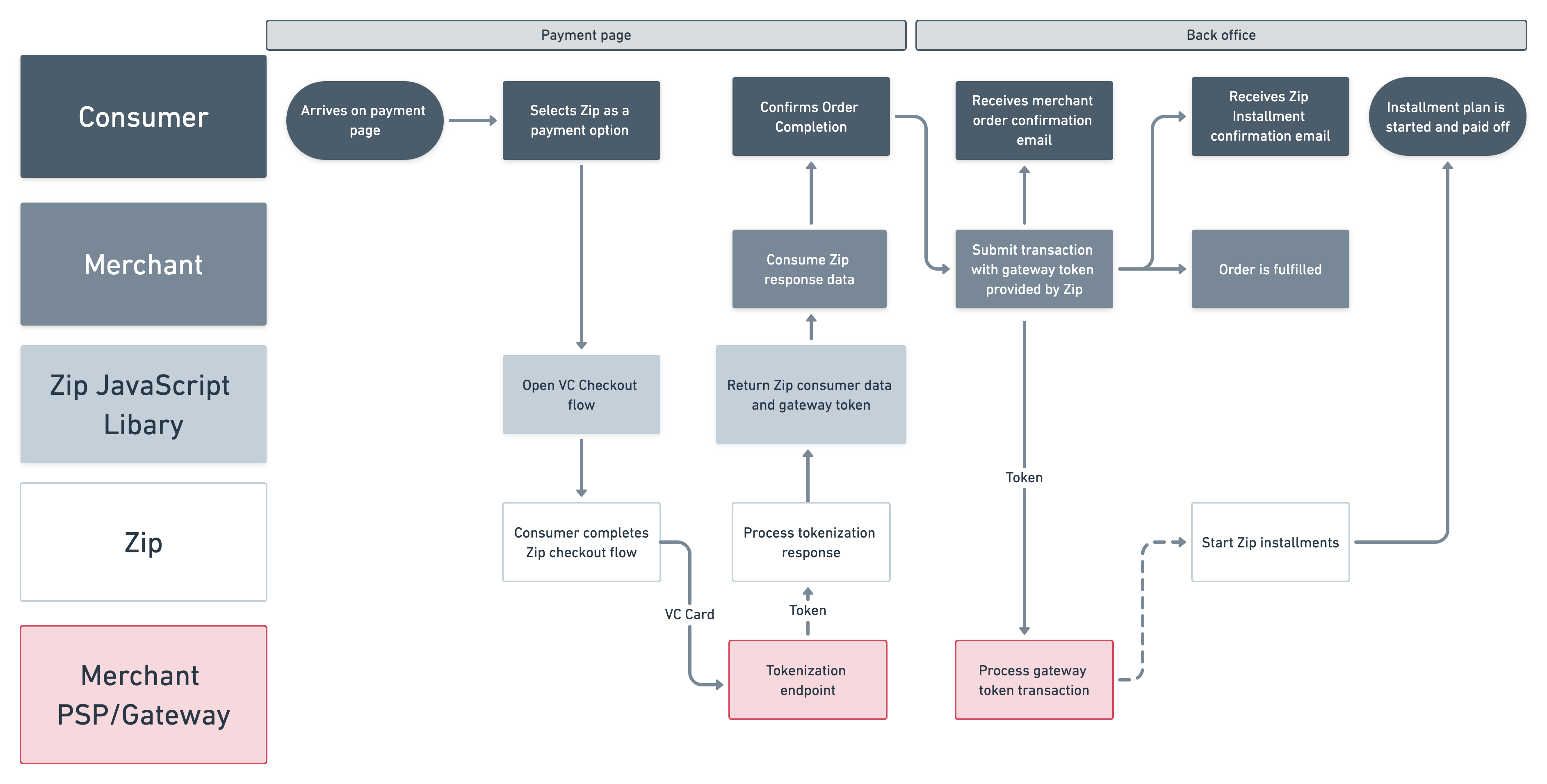Tokenization
Tokenization
Overview
Zip Virtual Checkout has extended the capability of its product and now supports PSP/Gateway tokenization for virtual cards. In this process, Zip will tokenize the virtual card on behalf of the merchant, rather than return the card details in the clear.

CheckoutFlow Parameter
This new tokenization feature has been added into the standard VC JavaScript integration and can be completed in as little as the addition of one new parameter:
checkoutFlow="xxx"
The input value for the checkoutFlow parameter will change depending on what PSP/Gateway you need the card details to be tokenized in.
Braintree Example below:
<quadpay-button id="QPButton" merchantId="44444444-4444-4444-4444-444444444444" checkoutFlow="braintree" merchantReference="xxxyyy111" amount="100" currency="USD"></quadpay-button>Supported PSPs/Gateways
At the current stage, Zip supports tokenization for the following PSPs/Gateways:
- Braintree
- Fiserv
As Zip continues to expand its virtual card offering, we are continually looking to add more support for PSP/Gateway tokenization. If your PSP/Gateway is not listed above, please reach out to your Zip Account Manager to submit a request.
Attributes
All available attributes for Virtual Checkout can be found at Zip Button Attributes.
When Zip tokenizes the card details, the card object in the onComplete callback response will be null — the card number, expiration date, and CVV will not be provided. Instead, a root element clientToken will be populated with a gateway token id (see card object documentation).
The clientToken value will be utilized by you as the merchant to create a charge on a virtual card with your PSP/Gateway. Please refer to your PSP/Gateway documentation for processing a transaction using the returned token.
Please NoteAs the Virtual Checkout virtual card is a one-time-use card, we do not recommend that the card be stored in the payment gateway long-term. Additional transactions above the assigned order limit will not be approved.
Updated 6 months ago
